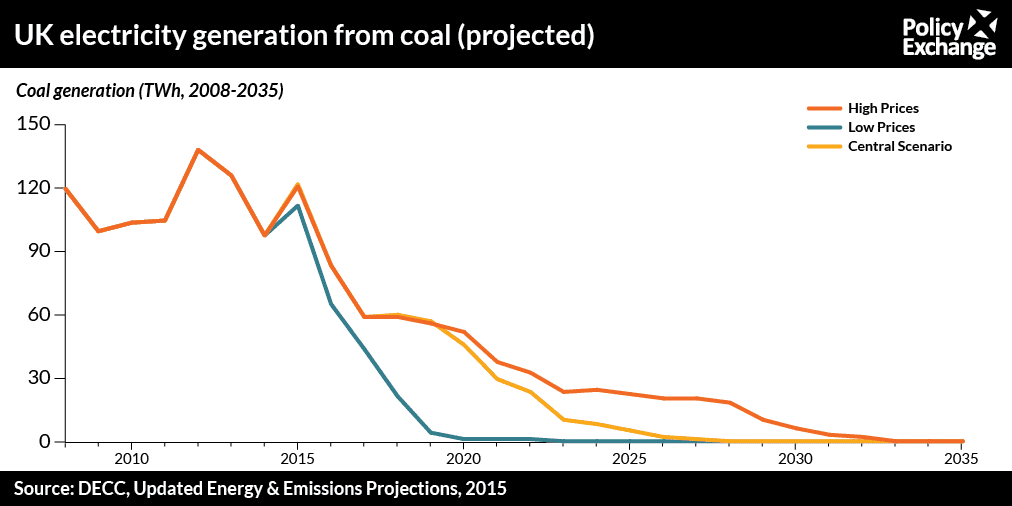This morning, Amber Rudd delivered her long-awaited ‘energy policy reset’ speech. Overall, it was a very good and timely speech, providing a clear strategy for energy policy going forward, and we welcome many of the proposals.
As I said in my previous blog, the speech was not about a fundamental change of direction or objectives, but a different way of achieving them. The mission remains to deliver secure, affordable, and sustainable energy. The speech repeatedly stressed the importance of energy security, as well as maintaining energy affordability. But this will not be to the detriment of decarbonisation: Rudd confirmed the commitment to delivering against carbon budgets, and said there are no plans to review the fourth carbon budget.
The speech provided a clear articulation of how the Government would like to achieve those objectives. Rudd expressed the need for a ‘course correction’ to a ‘consumer-led, competition focused energy system that has energy security as its heart’. Aligned with Conservative principles, the approach will be built around competition and innovation, and seek to move away from government intervention and subsidies. Rudd would like a competitive market, with the Government ‘out of the way as much as possible by 2025’.
Arguably the most significant announcement in the speech was that coal generation will be phased out by 2025 (with restrictions from 2023). This is an extremely significant and symbolic move, just a fortnight ahead of the Paris climate negotiations. Some existing coal power stations would have come off the system in any case over the next few years, but as DECC’s own projections show, there is a risk that coal capacity could linger until 2030 or so without the backstop measure proposed, (under certain scenarios).

However, Government will need to think carefully about how the coal phase out can be achieved whilst maintaining security of supply. The speech made a strong case for a new fleet of gas and nuclear power stations to fill the capacity gap. These will play an important role, but in our view DECC should also consider other options such as interconnection, energy storage, demand shifting, and energy efficiency – which can be complementary and cheaper ways to ensure security of supply.
Another significant announcement was that Government is prepared to support up to 10GW of additional offshore wind capacity to be built during the 2020s. There will be three Contract for Difference (CfD) auction rounds during this Parliament, the first of which will take place during 2016. This will bring very welcome clarity to the offshore wind sector, but comes with strings attached: Government will only provide support if the cost of offshore wind continues to come down. As we argued in our previous report The Customer is Always Right, support to offshore wind under previous mechanisms failed to secure best value for money. There has been a growing need to inject more conditionality, with support tied to progress on costs. The offshore wind industry has claimed that further cost reductions are possible, and now Government is taking them to task.
The speech also picked up on regulation and system operation. As profiled in our recent report, Governing Power, there are now more than 30 bodies involved in aspects of policy, regulation and system planning, and there is a strong case for change. Our report recommended that Government should consider creating an Independent System Operator to create clearer accountability for managing security of supply. In line with our recommendation, Amber Rudd confirmed today that DECC, Ofgem, National Grid and the National Infrastructure Commission will consider ways to make the system operator more independent.
Aside from this, the speech contained a host of other interesting nuggets of information. Rudd suggested that the Energy Company Obligation will be targeted more closely on fuel poor and vulnerable consumers. This is a positive step, since our previous analysis showed that policies have been poorly targeted. This will go some way to increasing fuel poverty funding, although it may still fall short of the £1.2 billion per year which is required in order to hit fuel poverty targets. Rudd also indicated that Government would like to make intermittent generators pay for costs they impose on the system. This is an important part of the debate over whether and how renewables can become subsidy free in the future.
Overall, the speech clearly articulated how the Government would like to take energy policy forward, and we support the agenda to move to a more consumer focused and competitive energy system.

